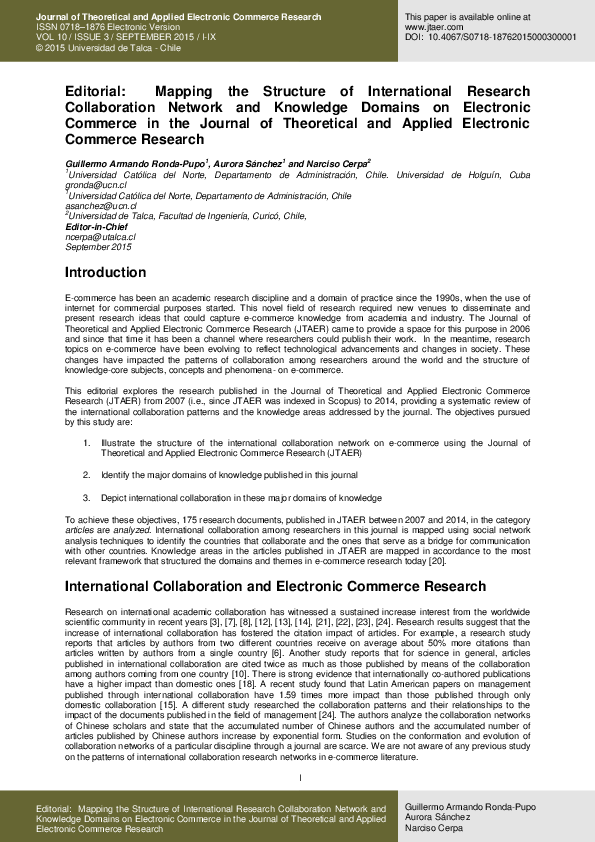Effect of E-Servicescape on Emotional Response and Revisit Intention in an Internet Shopping Mall
IF 5.1
3区 管理学
Q1 BUSINESS
Journal of Theoretical and Applied Electronic Commerce Research
Pub Date : 2024-08-05
DOI:10.3390/jtaer19030099
引用次数: 0
Abstract
This study aims to explore the effect of the e-servicescape on the emotional response and revisit intention of customers in an internet shopping mall (ISM) environment. The literature was reviewed on the e-servicescape, emotional response, and revisit intention in an internet shopping mall. A relevant model and hypothesis were established. For the empirical study, a survey form was developed and conducted on 150 customers with experience using a certain ISM. Reliability analysis and confirmatory factor analysis were performed using SPSS 27.0 and Amos 26.0 software, and the causal relationships were identified through structural equation modeling (SEM). Study results and implications were discussed and suggested. Among the factors of the e-servicescape in an ISM, aesthetics and surrounding elements did not have a significant effect on emotional responses, and spatial functionality showed a positive effect on emotional responses. Aesthetics had a weak negative effect on revisit intention. Surrounding elements and spatial functionality had no significant effect on revisit intention. The emotional response had a positive effect on revisit intention. This study identified the importance of the e-servicescape in the ISM environment and especially emphasized the importance of spatial functionality on the emotional response and aesthetics on revisit intention. This study presented several suggestions and implications to corporate managers regarding the development and management of the future ISM environment and other similar business settings.电子服务景观对网络购物中心情感反应和重访意向的影响
本研究旨在探讨在互联网购物商城(ISM)环境中,电子服务景观对顾客情感反应和重访意向的影响。研究回顾了有关网络购物环境中电子服务景观、情感反应和重访意向的文献。并建立了相关模型和假设。为了进行实证研究,研究人员制作了一份调查表,并对 150 名有使用某 ISM 经验的顾客进行了调查。使用 SPSS 27.0 和 Amos 26.0 软件进行了信度分析和确认性因子分析,并通过结构方程建模(SEM)确定了因果关系。对研究结果和意义进行了讨论并提出了建议。在 ISM 电子服务景观的各因素中,美学和周边元素对情感反应没有显著影响,空间功能对情感反应有积极影响。美学对重访意向有微弱的负面影响。周围元素和空间功能对重访意向没有明显影响。情感反应对重访意向有积极影响。本研究确定了电子服务景观在 ISM 环境中的重要性,并特别强调了空间功能对情感反应和美学对重访意向的重要性。本研究就未来 ISM 环境和其他类似商业环境的开发和管理向企业管理者提出了若干建议和启示。
本文章由计算机程序翻译,如有差异,请以英文原文为准。
求助全文
约1分钟内获得全文
求助全文
来源期刊
CiteScore
9.50
自引率
3.60%
发文量
67
期刊介绍:
The Journal of Theoretical and Applied Electronic Commerce Research (JTAER) has been created to allow researchers, academicians and other professionals an agile and flexible channel of communication in which to share and debate new ideas and emerging technologies concerned with this rapidly evolving field. Business practices, social, cultural and legal concerns, personal privacy and security, communications technologies, mobile connectivity are among the important elements of electronic commerce and are becoming ever more relevant in everyday life. JTAER will assist in extending and improving the use of electronic commerce for the benefit of our society.

 求助内容:
求助内容: 应助结果提醒方式:
应助结果提醒方式:


